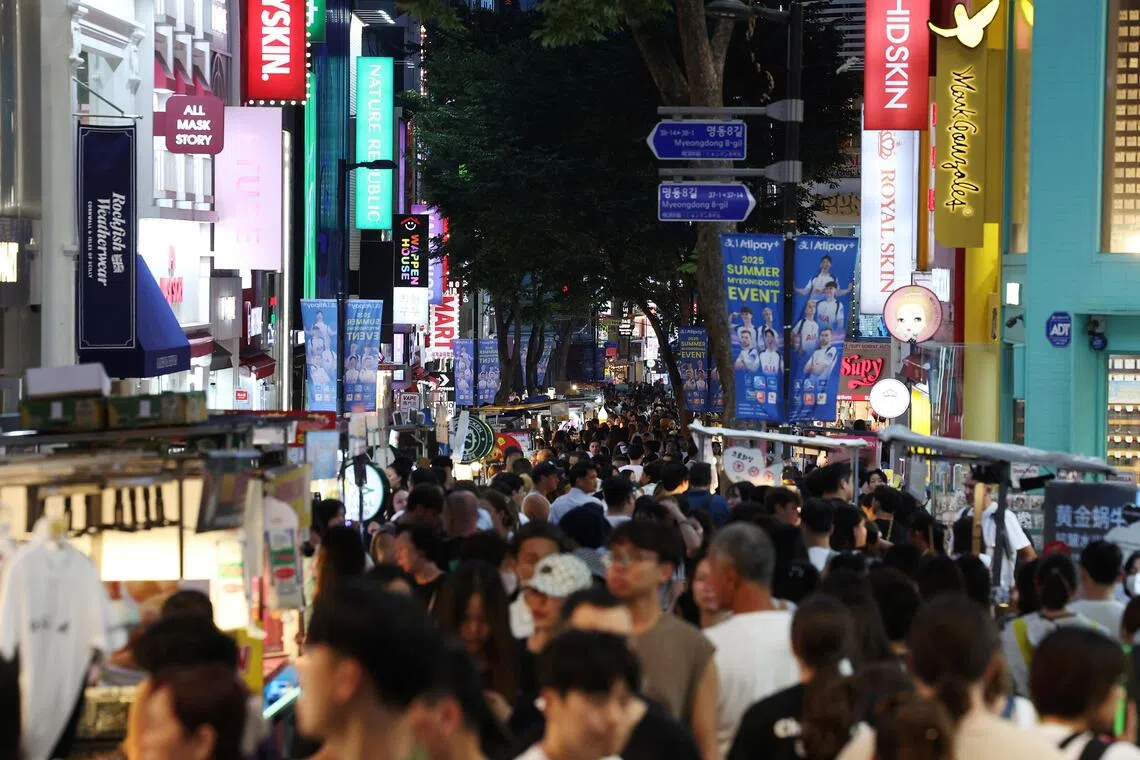Youth, driven by social anger, make up half of arrests for public threats in South Korea
Sign up now: Get insights on Asia's fast-moving developments

The most common motive cited is anger or resentment towards society.
PHOTO: REUTERS
SEOUL – A wave of bomb threats and mass violence hoaxes in South Korea is being driven not by extremists or organised groups, but by young adults acting out of frustration with society, according to data released on Sept 29.
Half of the suspects arrested under South Korea’s new public intimidation law in the past several months are in their 20s and 30s, according to police and justice ministry data obtained by Representative Song Seok-jun.
The most common motive, cited in roughly a third of the cases (13 out of 48), is anger or resentment towards society.
The law, which came into effect on March 18, criminalises threats, often made online, to harm the public or unspecified groups. It carries penalties of up to five years in prison or a fine of up to 20 million won (S$18,400).
Between March and July, authorities investigated 72 cases of public intimidation and apprehended suspects in 49 of them, totalling 48 individuals. Among those arrested, 16 were in their 20s and eight were in their 30s.
Men made up the overwhelming majority, accounting for 41 of the 48 suspects, according to separate police data cited by Representative Yang Bu-nam earlier in September.
Government officials say the real-world consequences of these hoaxes are far from trivial. Threats have led to mass evacuations, business closures and costly law enforcement mobilisations.
In one incident in August, an online post claiming a bomb had been planted at Shinsegae’s flagship department store in Seoul led to the evacuation of 4,000 people and searches at 13 locations in the country. The suspects were teenagers and men in their 20s.
Beyond the disruption, officials argue that the psychological toll on the public and damage to small businesses make these crimes especially harmful.
The Ministry of Justice has already filed civil lawsuits demanding nearly 89 million won (S$82,000) in compensation from suspects in three high-profile cases from 2023. In one of them, involving a threat to attack Sillim Station on Seoul Subway Line Number 2, a court recently ordered the full amount claimed, about 43.7 million won, to be paid to the state.
Sociologist Choo Ji-hyun of Seoul National University told local media that many of the younger suspects appear to be “attempting to prove their presence or power through threats of violence”, often using online platforms to perform these acts for an imagined audience.
This trend may be linked to broader psychological and economic pressures.
A national survey released in May by Seoul National University’s School of Public Health found that 55 per cent of South Korean adults reported living in a state of prolonged emotional frustration, with nearly 70 per cent believing society is “fundamentally unfair”. THE KOREA HERALD/ASIA NEWS NETWORK


